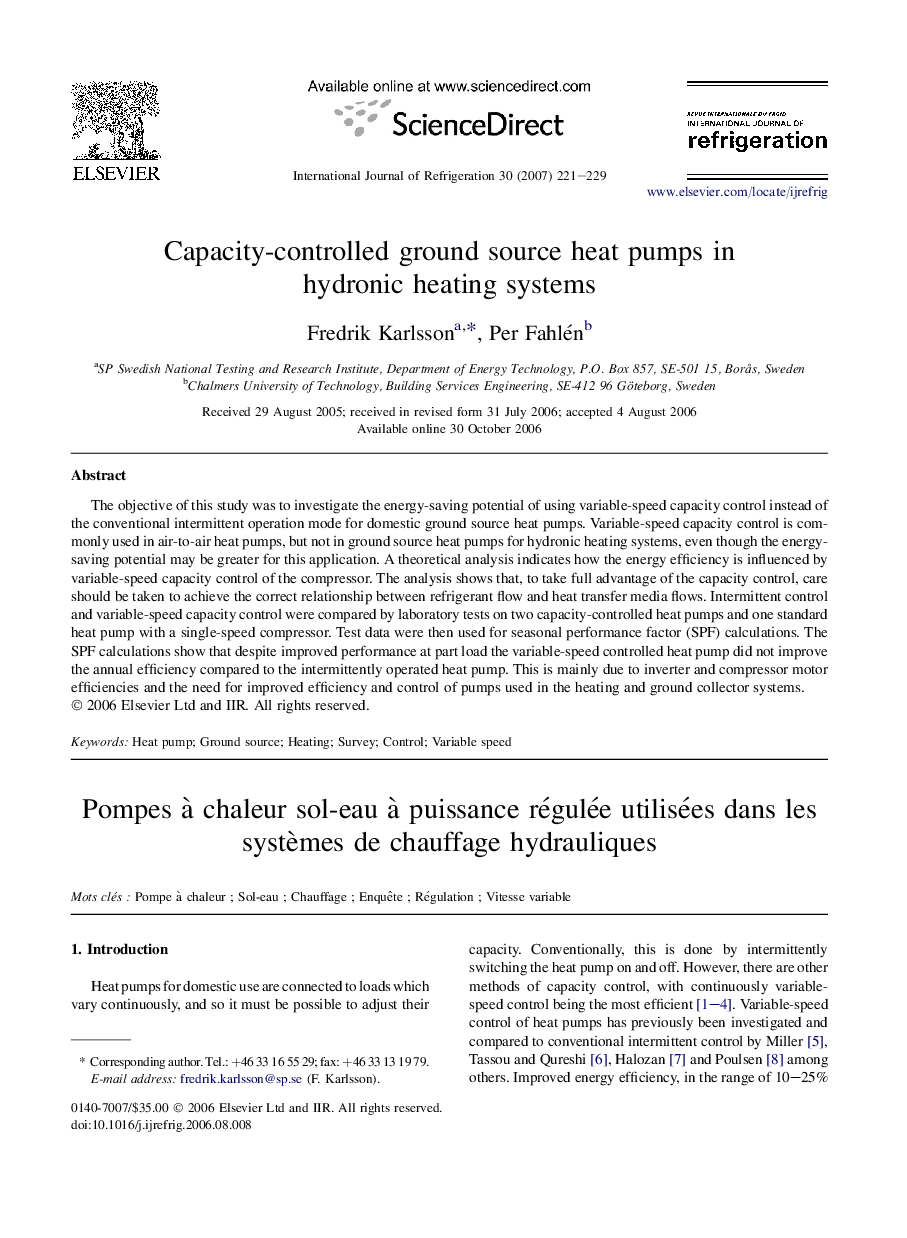| Article ID | Journal | Published Year | Pages | File Type |
|---|---|---|---|---|
| 787604 | International Journal of Refrigeration | 2007 | 9 Pages |
The objective of this study was to investigate the energy-saving potential of using variable-speed capacity control instead of the conventional intermittent operation mode for domestic ground source heat pumps. Variable-speed capacity control is commonly used in air-to-air heat pumps, but not in ground source heat pumps for hydronic heating systems, even though the energy-saving potential may be greater for this application. A theoretical analysis indicates how the energy efficiency is influenced by variable-speed capacity control of the compressor. The analysis shows that, to take full advantage of the capacity control, care should be taken to achieve the correct relationship between refrigerant flow and heat transfer media flows. Intermittent control and variable-speed capacity control were compared by laboratory tests on two capacity-controlled heat pumps and one standard heat pump with a single-speed compressor. Test data were then used for seasonal performance factor (SPF) calculations. The SPF calculations show that despite improved performance at part load the variable-speed controlled heat pump did not improve the annual efficiency compared to the intermittently operated heat pump. This is mainly due to inverter and compressor motor efficiencies and the need for improved efficiency and control of pumps used in the heating and ground collector systems.
